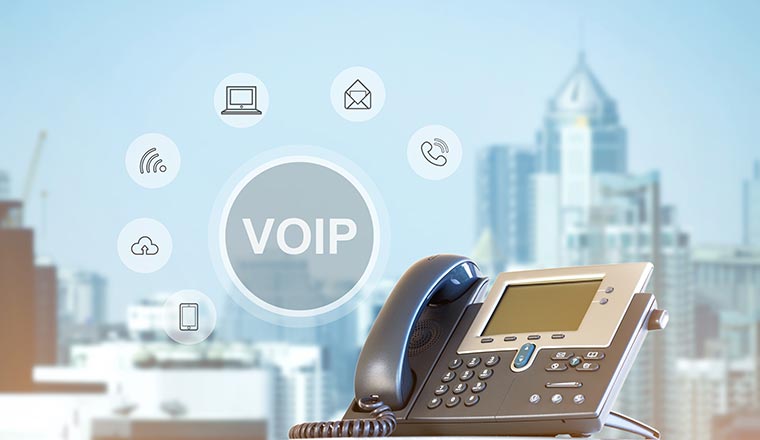VoIP Cyber Attacks

There are distinct phone lines and mechanisms for voice traffic in older telecommunication networks. Although this isn’t usually a problem, it might limit the systems’ flexibility and scalability because new deployments may necessitate acquiring and building new physical infrastructures.
On the other hand, VoIP uses computer software rather than a physical phone to carry voice communication across a network. VoIP systems are getting more popular as a result of their increased adaptability. VoIP networks may be more quickly adapted to distant usage than traditional phone lines, particularly in the aftermath of the COVID-19 epidemic. Systems that use VoIP (Voice over Internet Protocol).
A VoIP system is a piece of software that operates on computers and connects to the Internet. As a result, these systems are susceptible to a wide range of attacks.
Because businesses sought to adjust fast to the “new normal” of a dispersed and hybrid workforce, VoIP cyber security was mainly ignored. One of the best examples of this is the massive surge in “Zoombombing” at the onset of the pandemic.
Unfortunately, many organizations did not grasp the need for VoIP security until it was too late. Data breaches and other crimes have catastrophic consequences that were not detected until the damage was done..
Every year, more than half of all small businesses experience a data breach or hack.
Why?
Most small firms do not have proper security measures in place because hackers are aware of this. Although small companies target the bulk of cyber attacks and 95 percent of credit cardbreaches, only 14 percent of them have appropriate security measures in place.
Packet sniffing, a typical VoIP attack technique, allows the unencrypted contents of voice data packets to be intercepted and captured while en route.
Businesses cannot use their VoIP services due to DDoS (Distributed Denial of Service) assaults, which purposefully overload networks.
DDoS attacks often involve a considerable number of botnets, computers that hackers remotely control. These “Zombie Computers” overload networks, websites, and servers with data and connection requests rendering VoIP services inoperable.
Vishing is a sort of VoIP phishing in which a hacker calls you posing as someone from a wellknown number or source to get personal information such as passwords and credit card data.
To fool potential victims, vishing hackers employ caller ID spoofing, which entails making the names and numbers shown on your caller ID look legitimate. Depending on your bank’s identification, these scammers may pretend to be phoning from your bank’s line and request your password to safeguard your account from further intrusions.
There are several strategies that may be used to keep ahead of these attacks:
- Select the most appropriate VoIP service provider for your requirements.
- Use a virtual private network (VPN) and activate filtering for remote access. For instance, KRS Services offers as secure-access VPN, Spyware, Botnets, and Phishing Protection as well as Network Security.
- Keep track of all phone calls and records of access.
- Create a controlled administrator access system and, most importantly, inform your employees about cybersecurity. Increased public awareness of the significance of secure passwords should be a priority.
- Hackers may be able to get access to these accounts even if strong passwords are used. As a result, you should consider including two-factor authentication in your website design. This might provide another layer of protection to your password.
- Everyone nowadays uses a variety of mobile devices to access the Internet, which is especially true in the workplace. Ensure you have a policy in place if your staff use their mobile devices to make VoIP calls. They need to be well protected.
VoIP systems may not be for everyone’s business, but it definitely is the new wave/source of communications across a broader network. If you would like further information and detail on how KRS can walk you through a secure setup or plan for a secured VoIP system network, feel free to reach out to us at 201-298-5385, or via email at info@manageditcybersecurity.com or info@krsit.com .

